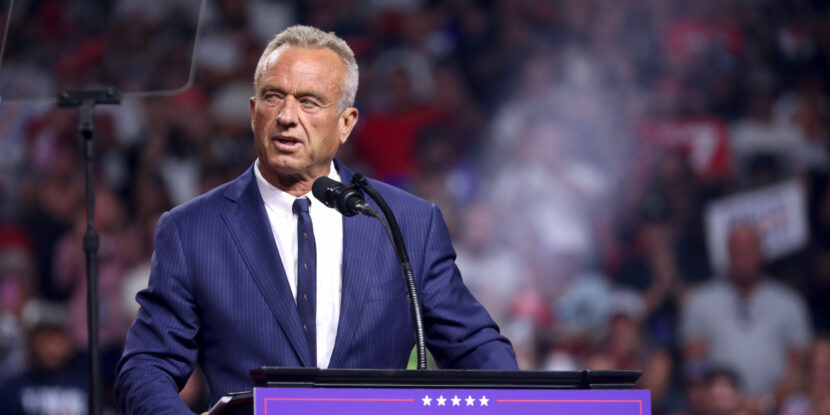The Ukraine and U.S. Border supplemental funding deal — widely reported by the corporate media as ‘imminent’ — doesn’t really exist. Instead, the few details appearing in the media have come in the form of leaks from Senators regarding what has been alluded to in meetings with their colleagues and the review of draft text that only exists on disparate word documents controlled by the negotiators.
What has been made public over the past several weeks has caused a great deal of concern and consternation among rank-and-file Senate Republicans as well as voters across the country. Meanwhile, President Joe Biden has continued to allow the illegal immigrant invasion at the southern border to continue unabated.
Despite negotiators insinuating a bill existed as early as January 13th, Democrat and Republican Senate leadership have yet to produce any actual legislative text for their colleagues to review. Over two weeks ago, Sen. James Lankford (R-OK) posted on X:
I encourage people to read the border security bill before they judge the border security bill. I also advise people not to believe everything you read on the internet….
While Lankford’s post would make sense if legislative text existed, the fact is there was no text for Senators to review on January 13th — and that remains the case today. The plea from the Oklahoma Republican harkened back to an infamous moment during the Obamacare debate when former House Speaker Nancy Pelosi (D-CA) said: “We have to pass the bill so that you can find out what is in it.”
During a Senate Republican Conference meeting last week, The National Pulse was told that Sen. Thom Tillis (R-NC) lashed out at his Republican Senate colleagues, calling their attacks on the deal “disingenuous.” He argued the only reason his colleagues wanted to see draft text was so they could use it to attack the negotiations. Senators were left dumbfounded by Sen. Tillis’s claims — which further confirmed to opponents that they were being sold a bad deal by leadership.
As to the accusation that opponents of the ‘supposed’ agreement are peddling “lies,” at least one Senator confronted leadership aides who conceded that the provisions reported by Fox News on January 13th were a part of the deal. They did, however, insist other — unreported — provisions were a ‘win’ for conservatives but refused to share those with the Senate Republican Conference.
About Those ‘Other’ Provisions
Since January 13th, more details regarding the Border Deal component of the Senate funding supplemental have trickled out. What was supposed to be legislation addressing border security to curb the ongoing illegal immigration crisis at the U.S. southern border is instead a jobs program that will benefit major donors to both parties — especially those on Wall Street.
The deal sets in place a baseline number of illegal immigrants who can — in essence — cross into the U.S. each week before triggering a shutdown of the border. While some corporate news outlets have claimed these border crossers would not be released into the U.S., the lax asylum claim provisions indicate that in reality most will not be sent home. Instead, it appears these individuals will receive some form of work permit and be allowed to remain in the U.S. and fed into a system of cheap, immigrant labor.
It is believed that the deal does little to nothing to curb President Joe Biden’s legally dubious use of parole powers – granting what is essentially blanket amnesty to large swaths of immigrants who cross the border illegally. The Biden parole policy has received praise from numerous business interests and pro-open borders political organizations like the CATO Institute.
The President Can Already Shut Down The Border And The ‘Deal’ Could Undermine That
The most concerning provision believed to be in the Senate border deal is the so-called ‘border shutdown trigger.’ It has been widely reported the agreement negotiated by Sen. Lankford contains a provision that supposedly shuts down the U.S. border if encounters reach an average of 5,000 per day over a week or if they reach 8,500 in a single day. Once that threshold is reached, it appears the President’s authority to close the border under section 212(f) of the Immigration and Nationality Act (INA) would take effect.
Section 212(f) gives the President broad authority to limit access to the United States for certain immigrant groups or all immigrants if it is deemed “detrimental to the interests of the United States.” This authority was used on several occasions by former President Donald Trump and has been upheld by the U.S. Supreme Court after multiple challenges.
Under the Senate border deal, however, several Senators told The National Pulse that it appears the border shutdown provisions would either alter 212(f) presidential authority or would provide federal courts with the grounds to roll back the shutdown power. The changes would in effect limit future presidential power to close the border — a fact that is conspicuously absent from the talking points being pushed by Senate leaders.
Republican opponents of the so-called border deal have consistently pointed out that President Biden already has the authority to close the border under 212(f) should he so choose.
Is It Even A Deal If Most Congressional Republicans Oppose It?
Earlier this week, Senator Roger Wicker (R-MS) admitted it will be likely several more days — probably early next week — before any actual legislative text on the Ukraine and U.S. Border supplemental funding bill is ready for review. Despite no bill yet existing, Senate leaders on both sides of the aisle continue to insist Senators fall in line and support the effort.
Yesterday, however, a resolution in the Republican Conference presented by Sen. Mike Lee (R-UT) overwhelmingly passed among his colleagues which demands Senators be given two to three weeks to review and debate the bill. The National Pulse is told by a source present at the Conference meeting that Senate Minority Leader Mitch McConnell (R-KY) voted against the measure. Without the backing of leadership, it remains likely that Senators Schumer and McConnell will attempt to hastily move the bill through the Senate.
If the supplemental funding bill were to pass — a prospect that is not certain at the moment — it would face fierce opposition in the House. Speaker Mike Johnson (R-LA) has repeatedly said the bill is “dead on arrival” in the House of Representatives.




















